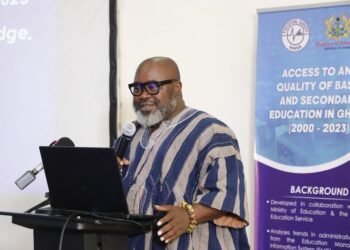The Vice President of IMANI Centre of Policy and Education, Mr.Bright Simmons says that, the information available now on the Agyapa deal does not give the investor confidence for them to value the deal well enough.
He made this claim whiles elaborating on the deal during the virtual town hall meeting organized by IMANI on the Agyapa Royalties Deal, where he also noted that, what we really must be focused on as a country, is the assets we have which is going to be used to capitalize the royalties.
He also said it is important to focus on the valuation of the deal because, despite what the government has said which is with the market we valuate,
“Its not a market that we valuate and if you get a bad valuation from the start it will have an effect ultimately on other opportunities and prospects going down.
“If your capital structure is poor and if your asset and your balance sheet is weak, your ability to raise capital is bad. Secondly if you raise debt, it has an impact on whether or not you can meet your dividend payout ratio.”
He then said that the civil community has not been happy with the way that they have been treated with regards to the transparency on the Agyapa Deal.
“The civil community has not been happy with the way that we have been treated as if we do not have a seat at the table. When it comes to resource governance issues, we fought very hard for a seat at the table and we are not going to see that seat to investment bankers its not happening. When Ghana became a pilot member of the Extractive Industries Transparency Initiative (EITI), it was on the back of serious activism by CSOs to bring transparency to bear on the exact issues that we are discussing today, issues of revenue and distribution of revenue.”
He further said that, the reason why the CSOs are taking the government up on the Agyapa matter is because they promised them that they are willing to have a multi stakeholder engagement regarding revenue disclosure and are now not doing that.
“It’s not that the CSOs are being unreasonable and are demanding too much. We want the government to account for the very things they promised to do which it’s not doing.”
He added that, through the EITI standard, they are entitled to every single dimension or information of the Agyapa Deal.

In elaborating the government’s side of the Agyapa deal, he said the government is basing the Agyapa Deal on three important criteria that is the short term which is getting emergency money, the medium term that is making profit of the asset and and the long terma which is seeking to maximize revenue yearly.
“Most political parties and civil societies don’t have a fundamental problem with an attempt to create a special vehicle, putting the resource to try and maximize it. The challenge is, the way the government has decided to approach it. Even the most ardent nationalist in this matter thinks that, by using some private sector expertise, we can do more with the resources. But we have realised that this is how the government understands the deal.”




















